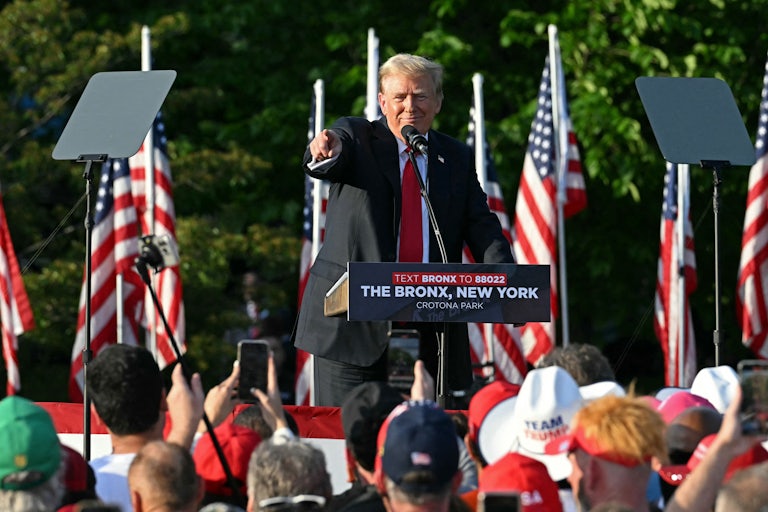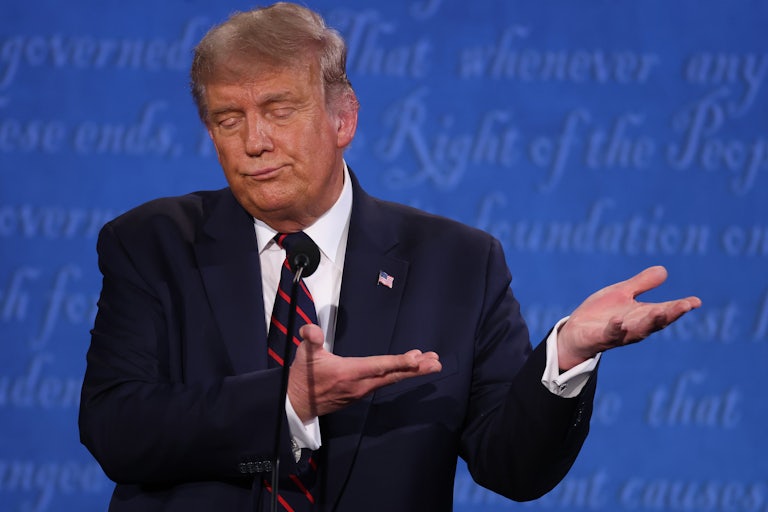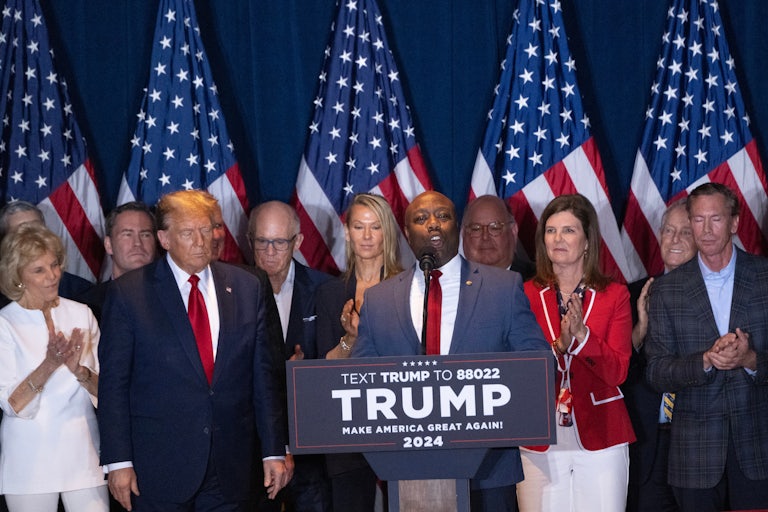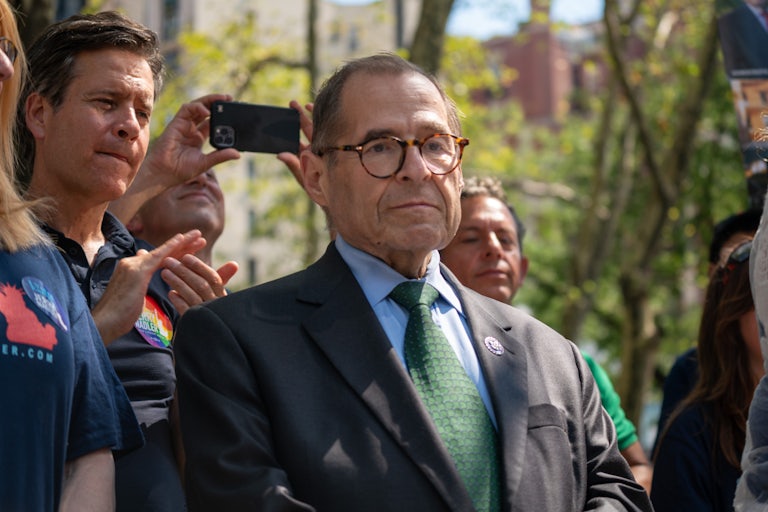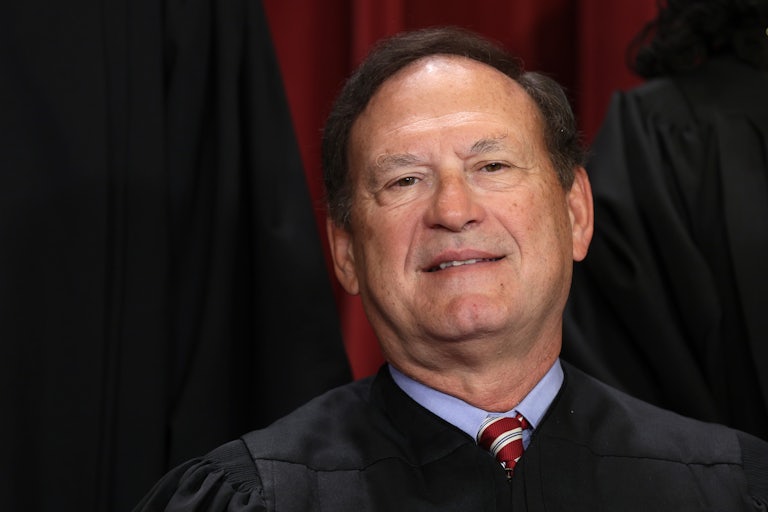There’s a New “Silent Majority” Out There—and It Is Not Conservative
Ever since Richard Nixon used the phrase, it’s been a Republican thing. But the Republicans are the extremists now, and the Silent Majority isn’t what it was in 1969.

Those of you of a certain age will recall the phrase “the Silent Majority,” made popular by Richard Nixon—and his crooked, cash-thirsty Vice President Spiro Agnew—in 1969 to refer to those middle-class Americans who weren’t out in the streets making noise about Vietnam or civil rights but sitting quietly at home seeking normalcy, law and order, and someone to save the country from extremism. Pat Buchanan, the old Nazi war criminal defender, has claimed that he placed the phrase before Nixon in a memo and the president seized on it.
Republicans have used it ever since. It was used by Ronald Reagan. It was employed by Rudy Giuliani and Mike Bloomberg (when he was running, as a Republican, for mayor of New York). Donald Trump gave it a spin in 2016. Overseas, Tory David Cameron and rightist leaders in Italy and Portugal have taken it up.
No candidate on the broad left has ever, to my knowledge, invoked the phrase. It’s high time that changed.
Earlier this week, you may have noticed, there was a special election in Ohio’s 6th congressional district, which runs from Youngstown to the West Virginia border. The Cook Political Report rates that district R+16, meaning a Democrat wins it about as often as Trump emits an untangled sentence. In 2020, Trump carried it by 29 points.
And Tuesday? The Republican still beat the Democrat—but by single digits. Michael Rulli, the Republican state senator who won the seat, spent $570,000. The Democratic candidate, an Air Force veteran who most recently worked as a waiter, spent $7,000.
What’s this have to do with the Silent Majority? I suspect maybe a lot.
If an amateur Democrat who couldn’t put two metaphorical nickels together can come within nine points of an experienced pol Republican in a district as scarlet-red as the Buckeyes’ jerseys, something is up. And this result is not an outlier. As Aaron Blake pointed out in The Washington Post, there have been six special congressional elections this cycle and the Democrat has outperformed in four of them, the Republican in just one. In the sixth race, Blake notes, the results (the Democrat won) closely mirrored the 2020 results, but “Democrats swung the results by double digits from the 2022 race for the same seat and flipped the seat blue.”
Simon Rosenberg, the high priest of Democratic optimism with his Hopium Chronicles Substack, constantly preaches: Don’t look at the polls; look at election results. We do not of course know whether his optimism about this November will be validated. We do, however, know that he (and pretty much he alone) was correct that the Democrats would hold their own in the 2022 midterms. He was right then, and he’s been right about most of these elections ever since.
So, a theory for you: Maybe, just maybe, there is an army of Americans out there who may not call themselves liberal or progressive but who are anywhere from sort of turned off to massively repulsed by MAGA. And while Trump and Fox News and Steve Bannon and Marjorie Taylor Greene and all the rest of them spend their days fulminating about America dying and hyping the authoritarian tsunami coming—talk that the mainstream media picks up and that dominates our discourse—there are in fact millions of Americans sitting quietly at home who detest these histrionic harbingers of hatemongering (a Safire-esque turn of phrase for you, since I mentioned Agnew).
They are out there. And they, I submit, are your new Silent Majority.
They’re not all liberal. But they definitely support abortion rights. They’re not rushing to join trans rights groups. But they want people to be treated with empathy and tolerance. They’re not reading gender-bending young adult fiction. But they recoil against censorship. They’re not socialists. But they want the government to do more for working- and middle-class people. They’re not Earth Firsters. But they believe climate change is real. They may still tell pollsters they’re wary of “big government.” But new interstates and bridges, and airport expansions, and new light-rail tracks, and expanded broadband access? They’re great with all that.
And most of all: They, just like Nixon’s old Silent Majority, seek normalcy, law and order, and someone to save the country from extremism. But in Nixon’s time, the extremism came from the left, while today it comes from the right. It’s the Trump right that attacks normalcy, on a daily and sometimes hourly basis. It’s the Trump right that is lawless, as evidenced most obviously by the fact that all these Republicans are tripping over themselves to support a convicted felon to be the president of the United States. And it’s the Trump right that is extremist on just about every issue, from health care to foreign policy.
So they sit at home, probably not watching much cable news, not marching in any marches, but just waiting until Election Day to register their opposition to MAGA. And in case you were wondering—yes, Michael Rulli, the Republican in that Ohio district, was MAGA all the way. He ran an ad in which the voiceover said: “On June 11, vote pro-gun. Pro-life. And pro-Trump.”
I would love to see the Democrats run with this idea that they are the new Silent Majority. It would infuriate the Republicans, who have assumed for 50 years that it is they who represent “regular America.” But with their slavish embrace of a sexual assaulting, classified document stealing, insurrection leading, twice impeached, quadruply indicted, and once (so far) convicted felon, they have waved goodbye to all that. They’re a noisy minority, and they’re alienating Americans by the millions.


